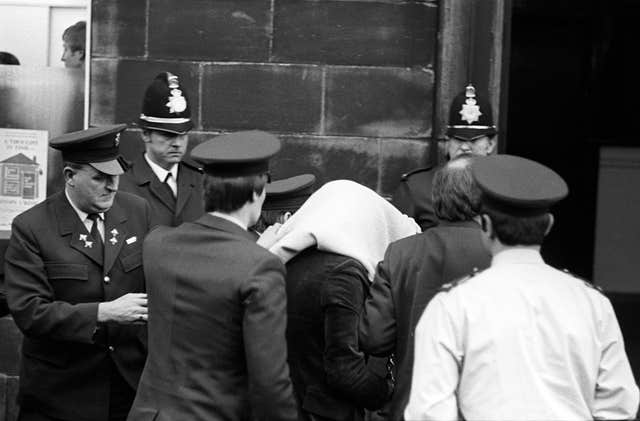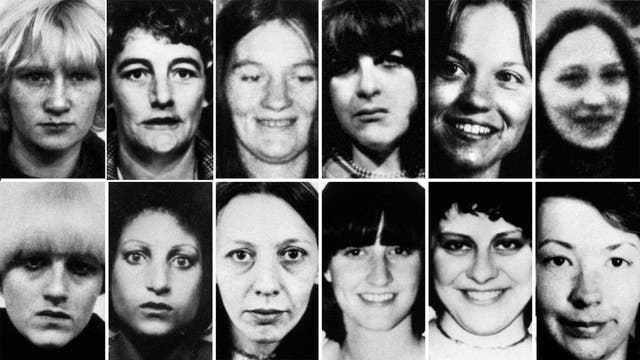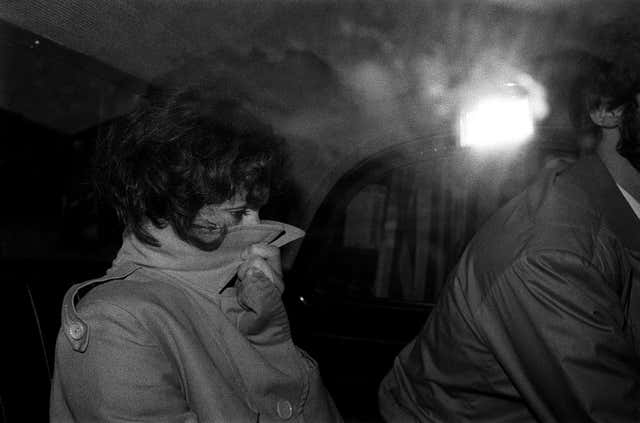Response to blunders in Ripper investigation shaped modern police inquiries
Peter Sutcliffe admitted it had been a miracle he had not been stopped earlier.

The hunt for the Yorkshire Ripper was the biggest manhunt Britain had ever known and the analysis of its many failings changed the way police mount major investigations.
Despite the 2.5 million police officer hours expended on catching him, Peter Sutcliffe continued his murderous spree for more than five years as the inquiry made a series of spectacular blunders.
At his Old Bailey trial, Sutcliffe himself said: “It was just a miracle they did not apprehend me earlier – they had all the facts.”
He was interviewed nine times, but was only caught when picked up by chance with a prostitute in his car.
There were warnings of a hoax from voice experts and other detectives, but Oldfield pressed on, convinced this was his man.
Because the voice on the tape had a North East accent, Sutcliffe, who was from Bradford, was not in the frame.
Oldfield’s mistake has been described as one of the biggest in British criminal history.
When the tape arrived it was a personal message to Oldfield, which said: “Lord, you are no nearer catching me now than four years ago when I started.
“I reckon your boys are letting you down George. You can’t be much good can ya?”
Later the same year Oldfield had a heart attack at the age of 57, and was subsequently moved off the case.
With attention focused on suspects with a North East accent, the Ripper continued his killing spree and claimed his 13th and last murder victim, 21-year-old student Jacqueline Hill, late in 1980.
Sunderland man John Humble admitted to being Wearside Jack in 2006 and was jailed for eight years for perverting the course of justice.

The Ripper incident room at Millgarth police station used a card index system which was overwhelmed with information and not properly cross-referenced, leading to evidence against Sutcliffe getting lost in the system.
Crucial similarities between him and the suspect, like the gap in his teeth and his size seven feet, were not picked up.
As early as 1976, when Marcella Claxton was hit over the head with a hammer near her home in Leeds, potentially vital evidence was overlooked.
She survived the attack and was able to help police produce a photofit, which later proved to be accurate, but she was discounted as a Ripper victim because she was not a prostitute.
On one occasion Sutcliffe was interviewed by officers who showed him a picture of the Ripper’s bootprint near a body, they failed to notice that Sutcliffe was wearing the exact same pair of boots.
Police also overlooked Sutcliffe’s arrest in 1969 for carrying a hammer in a red light district, and attempts by his friend Trevor Birdsall to point the finger at him in an anonymous letter.

The car had false number plates and Sutcliffe’s name was passed on to the Ripper squad, where it came up on their index cards.
Officers later found screwdrivers in his car.
A hammer and knife was found 50ft from where his car had been after officers allowed him to go to the toilet at the side of a building.
Later, Sutcliffe calmly told Detective Inspector John Boyle, who was interviewing him: “It’s all right, I know what you’re leading up to. The Yorkshire Ripper. It’s me. I killed all those women.”
He then began a detailed confession lasting 24 hours, and asked for his wife, Sonia, to be brought in so he could tell her personally that he was the Ripper.

West Yorkshire Police constable John Robins said on Friday: “The investigation into offences committed by Peter Sutcliffe was, at the time, the largest ever conducted by a UK police force and was subject to two exhaustive reviews in the immediate aftermath.
“The 1981 report by Sir Lawrence Byford and a subsequent review conducted by former West Yorkshire Police Chief Constable Colin Sampson identified the extensive efforts made by the inquiry team, as well as what clearly went wrong.
“Failings and mistakes that were made are fully acknowledged and documented.
“We can say without doubt that the lessons learned from the Peter Sutcliffe inquiry have proved formative in shaping the investigation of serious and complex crime within modern day policing.
“West Yorkshire Police is committed to ensuring that those harmed by crime are at the heart of what we do.”





